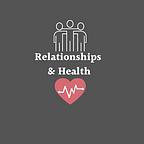Common Stressors in Families Facing Childhood Cancer
By Tatum Harvey and Madison Wiggins (MS students in Marriage and Family Therapy)
Many families have to face the challenge of a childhood cancer diagnosis. 300,000 children are diagnosed with cancer each year, with leukemia making up one-third of these diagnoses. Treatment has come a long way in this field, and 82% of children survive their diagnosis to remission. Despite this hopeful statistic, families may feel hopeless about the way this experience will change their family forever. In fact, many people see this as one of the most
stressful experiences a family can have. Studies have actually shown, however, that families are adaptive and can come out on the other side of the diagnosis and treatment still strong.
Here are two common stressors faced by families coping with childhood cancer and some tips on managing these stressors during treatment.
Intimacy in the Parents’ Relationship
Often one of the first things to go when parents must set aside their own needs to support their children is their sexual connection. With limited time and energy, it can feel like a necessary sacrifice in name of dedicating those resources to supporting the child in treatment and their siblings. While this may help the family survive in the early stages of cancer diagnosis and
treatment, it can be more harmful to the marriage, and, by extension, to the family, in the long run. When the life of regular doctor’s visits and treatment appointments becomes more normal or as the child goes into remission, the couple may realize they have lost their physical intimacy. They may feel as if they do not even know each other anymore. With the acknowledgment that time and other resources are limited, here are some ways to stay
physically connected to your partner during this challenging time:
● Find small ways to connect:
○ Give long hugs good-bye each day and be sure to say hello/good-bye with a kiss always
○ Take opportunities for small touches throughout the day
● Even if you don’t have the time or energy for sex, there are ways to maintain intimacy with your partner
○ Send each other sexual text messages to let the other know you are thinking about them and continue to desire them
○ If you both need to shower, why not do it together?
● Try to take time away for yourselves:
○ When you and your partner are feeling more connected, this can help you to be better able to support your child(ren)
○ Take time away from the child(ren) to have sex, even if it is not as often as you would like. Let others help out and give you two the chance to maintain your sexual relationship.
Emotional and Behavioral Challenges Faced by Siblings
When a child is diagnosed with cancer, the dynamics of the entire family will shift to react to this stressful event. A child’s cancer diagnosis can be particularly difficult for the child’s brothers and sisters. Siblings may have varied emotional reactions to the diagnosis, or they may develop
behavioral challenges or physical symptoms.
Here are some things that siblings of a child with cancer may experience:
● Academic or behavioral issues at school or at home
● Physical symptoms (e.g., stomach pain, headaches, etc.)
● Becoming overly clingy or experiencing separation anxiety
● Trouble sleeping or concentrating
● Feeling sad, angry, guilty, or lonely
● Feeling jealous of the attention that their sibling is receiving
● Long-term mental health challenges, such as anxiety and depression
Here are four ways you can help to support the siblings of a child with cancer:
● Openly acknowledge their feelings. Normalize the feelings that siblings experience, and encourage them to express them through talking about them, journaling, playing, or creating art.
● Spend quality time with them. When possible, at least one parent should spend time with siblings and remind them how much you miss them when you can’t be there. Engage in activities that they enjoy, even something as small as going for ice cream. Remind them that they are equally loved, and that they are not to blame for the cancer diagnosis.
● Let them be involved in treatment. Allow them to attend appointments with you and be aware of what is going on with cancer treatments. This may reduce confusion about what is going on at the hospital and decrease feelings of loneliness.
● Get others involved. Get help from family and friends, talk to the child’s school for additional support, and do not be afraid to seek help from a mental health expert.
Facing a childhood cancer diagnosis is incredibly stressful for families, and no two families will react to this process in the same way. Some hospitals and pediatricians can help to connect you to mental health and family experts who can help your family navigate the emotional, mental,
and relational challenges of cancer treatment. Medical Family Therapists (MedFTs) can work with you to collaborate with the healthcare systems and give you ongoing support throughout treatment. Ask your child’s doctors about what additional supports may be available to you.
